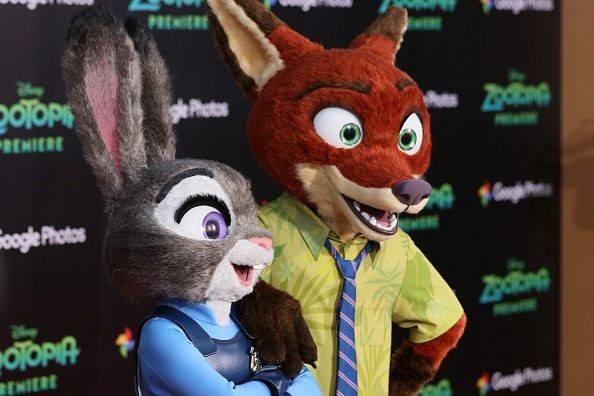‘Zootopia’ Box-Office Dominance Reveals Hollywood’s Possible Post-Oscars Blind Spot

LOS ANGELES — Even though this year’s Academy Awards hit an eight-year ratings low, it will still be the most-watched non-sports telecast of 2016, with more than 35 million Americans tuning in. And yet despite a glut of prestige-movie buzz, and workplace chatter dominated by Leonardo DiCaprio and Chris Rock, the post-Oscars weekend box office had an entirely different winner: “Zootopia.”
In fact, Disney’s animated animal comedy, which made nearly $74 million domestically, is the third animated film since 2011 to lead the box office the week after the Oscars. At the same time, not just honored films but the U.S. box office as a whole enjoy a measurable post-Oscars bump.
So it’s clear the Academy Awards get people to the movies, but is Hollywood delivering the right goods?
The outsize success that films like “Zootopia” have enjoyed during this window could be linked to the fact that they are foolproof, quality fallback options when millions of Americans are newly inspired to go to the movies and nothing else is really jumping off the marquee. A week of postmortem Oscar talk has plenty of friends and couples thinking about movie night, but there are slim pickings for those who don’t want to join the fun-for-all-ages “Zootopia” party. And that might mean Hollywood is missing out on some business.
One big beneficiary of this trend tends to be the best picture winner, generally a film targeted at more mature audiences and not surrounded by a ton of competition in the post-Oscars week. This year's choice, “Spotlight,” surged from $736,000 to $1.8 million last week by going from 685 to 1,227 screens. And last year, best picture winner “Birdman” went from 407 to 1,213 screens and box office receipts of about $880,000 to more than $1.9 million after its win.
That bump isn’t just for the films that added some hardware the week before — it also tends to translate across the board. This year, the overall box office gross jumped by 40 percent the week after the Oscars, despite no real new anticipated premiere other than “Zootopia.” In 2015, it actually dropped 10 percent, but the year before, the box office had a 16 percent jump after Oscar weekend. That weekend’s top movie was “300: Rise of an Empire,” which was only 2014’s 29th-biggest film overall.
In 2013, the bump was only 6 percent in the weekend after the Oscars, but the weekend’s top five films were “Jack the Giant Slayer,” “Identity Thief,” “21 and Over,” “Snitch” and “The Last Exorcism Part II.” Only “Identity Thief” cracked the year’s top 20 films.
On the corresponding weekend the year before, the domestic box office surged by 26 percent, with another animated film, Disney’s “The Lorax,” dominating its competition with a $70 million opening. And in 2011, “Rango,” an animated movie starring Johnny Depp, set the pace with a $38 million opening, while the total box office jumped 22 percent.
It’s pretty clear that post-Oscar weekend is a good time to capitalize on parents taking their children to animated movies, but the lift Hollywood’s self-congratulatory showcase gives the entire box office means it drives more than young families to the cinema. Studios are reluctant to unleash their big Oscar bait films this far before next year’s awards season, but that is hardly a deal-breaker (“Silence of the Lambs” won best picture despite a February release), and there does appear to be some unmet demand for more options.
The consistently solid performance of the animated genre does make a case that it’s a generally underserved market overall, but its particularly strong results during post-Oscar weekend could point toward the genre's being a safe consensus choice when other options are not as appealing. “Deadpool” made $16.4 million last weekend, after seemingly its entire target audience had seen the film already. Fantasy action adventure “Gods of Egypt” is another mega-budget studio film that’s out now, but it’s also marketed more for a younger audience and it’s been a critically panned flop that hasn’t been helped by a controversy stemming from its casting of white actors to play Egyptian roles.
“Batman v Superman: Dawn of Justice” comes out on March 25 and should open to massive numbers from a wide-ranging audience, but until then, Hollywood might be leaving money on the table by conceding post-Oscar weekend to family fare.
© Copyright IBTimes 2025. All rights reserved.





















